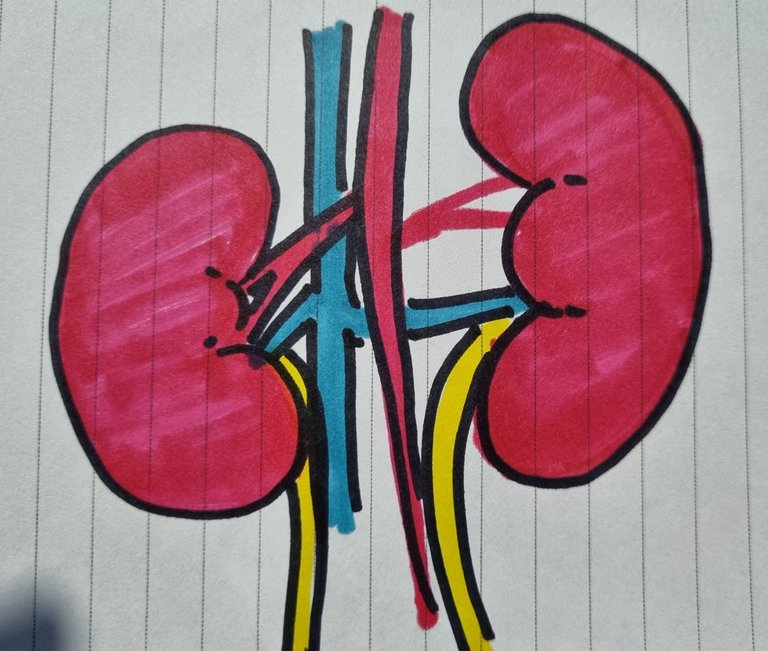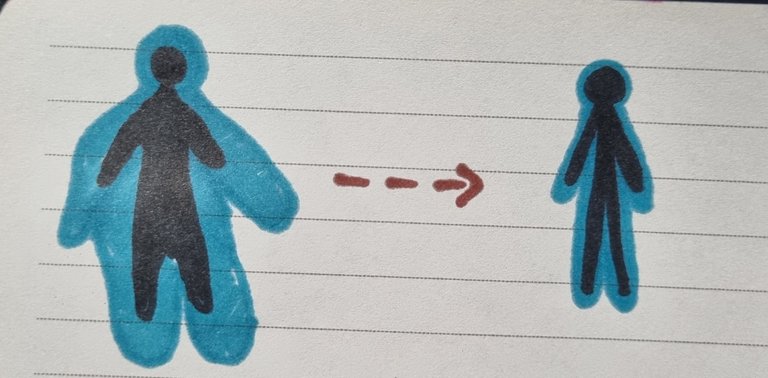Hola amigos,
Hoy quiero compartir con ustedes un tema interesante desde la ciencia. ¿Alguna vez te has preguntado por qué cuando tomas bebidas alcohólicas vas tantas veces al baño? Yo me hacía la misma pregunta, hasta que en la clase de Bioquímica Clínica II nos explicaron el porqué. Vamos, ¿quién no ha dicho alguna vez: "Me gusta la cerveza, pero no me gusta ir tanto al baño"? Así que decidí entenderlo desde un punto de vista bioquímico.
¡OJO! Si no sabes de bioquímica, no te preocupes. Te lo voy a explicar de una manera sencilla, para que todos podamos entenderlo.
Hello friends,
Today I want to share with you an interesting topic from science. Have you ever wondered why when you drink alcoholic beverages you go to the bathroom so many times? I used to ask myself the same question, until in Clinical Biochemistry II class they explained to us why. Come on, who hasn't ever said: "I like beer, but I don't like going to the bathroom so much"? So I decided to understand it from a biochemical point of view.
If you don't know biochemistry, don't worry. I'm going to explain it to you in a simple way, so we can all understand it.


¿Por qué la cerveza te hace ir tanto al baño?
Why does beer make you go to the bathroom so much?
La cerveza tiene como componente principal el etanol, que actúa como un diurético. ¿Qué significa esto? Básicamente, los líquidos que deberían ser reabsorbidos por los riñones ahora son enviados directamente a la vejiga, convirtiéndose en orina.
Pero si esto no te queda claro, vamos a profundizar un poco más.
Beer has ethanol as its main component, which acts as a diuretic. What does this mean? Basically, fluids that should be reabsorbed by the kidneys are now sent directly to the bladder, becoming urine.
But if this is not clear to you, let's dig a little deeper.

¿Dónde actúa el etanol?
Where does ethanol act?
El alcohol tiene un efecto sobre el sistema nervioso central, específicamente potenciando la actividad del sistema GABAérgico, que actúa como un "freno" natural en el cerebro.
- En el hipotálamo, esta activación inhibe la actividad de las neuronas responsables de liberar la hormona antidiurética (ADH).
- El etanol se une a los receptores GABA-A, causando una hiperpolarización en estas neuronas, como si las "frenara" y no las dejara trabajar. En otras palabras, quien normalmente libera esta hormona queda bloqueado por el efecto del GABA.
Alcohol has an effect on the central nervous system, specifically by enhancing the activity of the GABAergic system, which acts as a natural "brake" in the brain.
In the hypothalamus, this activation inhibits the activity of neurons responsible for releasing antidiuretic hormone (ADH).
Ethanol binds to GABA-A receptors, causing a hyperpolarization in these neurons, as if it "Brake
" them and did not let them work. In other words, those who normally release this hormone are blocked by the effect of GABA.

¿Qué pasa cuando no hay ADH?
What happens when there is no ADH?
La ADH es crucial porque ayuda a los riñones a reabsorber agua. Sin ella:
- El agua que consumes no se reabsorbe adecuadamente.
- El líquido que debería ser retenido en el cuerpo se elimina directamente como orina.
El cuerpo necesita agua para funcionar correctamente, y en condiciones normales, los riñones trabajan para conservarla. Pero cuando el alcohol está presente, este proceso se ve interrumpido.
ADH is crucial because it helps the kidneys reabsorb water. Without it:
The water you consume is not reabsorbed properly.
Fluid that should be retained in the body is eliminated directly as urine.
The body needs water to function properly, and under normal conditions, the kidneys work to conserve it. But when alcohol is present, this process is interrupted.
Efecto osmótico de la cerveza
Osmotic effect of beer
Además del etanol, la cerveza contiene agua, electrolitos, carbohidratos y otras sustancias. Cuando consumes cerveza:
- Aumenta el volumen de líquidos en tu cuerpo, lo que activa los riñones para eliminar el exceso y mantener el equilibrio hídrico.
- Los carbohidratos de la cerveza incrementan temporalmente la carga osmótica en los túbulos renales, lo que también fomenta la eliminación de agua.
In addition to ethanol, beer contains water, electrolytes, carbohydrates and other substances. When you consume beer:
Increases the volume of fluids in your body, which activates the kidneys to eliminate excess and maintain water balance.
The carbohydrates in beer temporarily increase the osmotic load in the renal tubules, which also promotes water elimination.

Espero que esta explicación haya aclarado tus dudas. Ahora ya sabes por qué la cerveza te hace ir al baño tan seguido, ¡y todo explicado desde la ciencia! Si tienes preguntas o quieres que hablemos de otro tema interesante, déjamelo en los comentarios.
I hope this explanation has cleared up your doubts. Now you know why beer makes you go to the bathroom so often, and all explained from science! If you have questions or want to talk about another interesting topic, let me know in the comments.

Credits: Drawings made by me. Cover edited in PicArt App. Image N3 edited in Samsung Gallery. Translation by DeepL.com. Source: https://pepsic.bvsalud.org/scielo.php?script=sci_arttext&pid=S1794-99982005000200003
Nice drawings!!! I loved it!!! I have never been good on that heheh!! It is a nice explanation indeed about the effects of alcohol in our body at least one of them :)
!hiqvote
Thank you. I did my best... Yes, the effects on the metabolism are many, but I wanted to make it seem simpler and more fun, so people don't get bored and I hope you find it interesting how the body behaves when faced with alcohol.
@gwajnberg, the HiQ Smart Bot has recognized your request (1/2) and will start the voting trail.
In addition, @makeup.byidy gets !PIZZA from @hiq.redaktion.
Discord. And don't forget to vote HiQs fucking Witness! 😻For further questions, check out https://hiq-hive.com or join our
$PIZZA slices delivered:
(1/5) @hiq.smartbot tipped @makeup.byidy